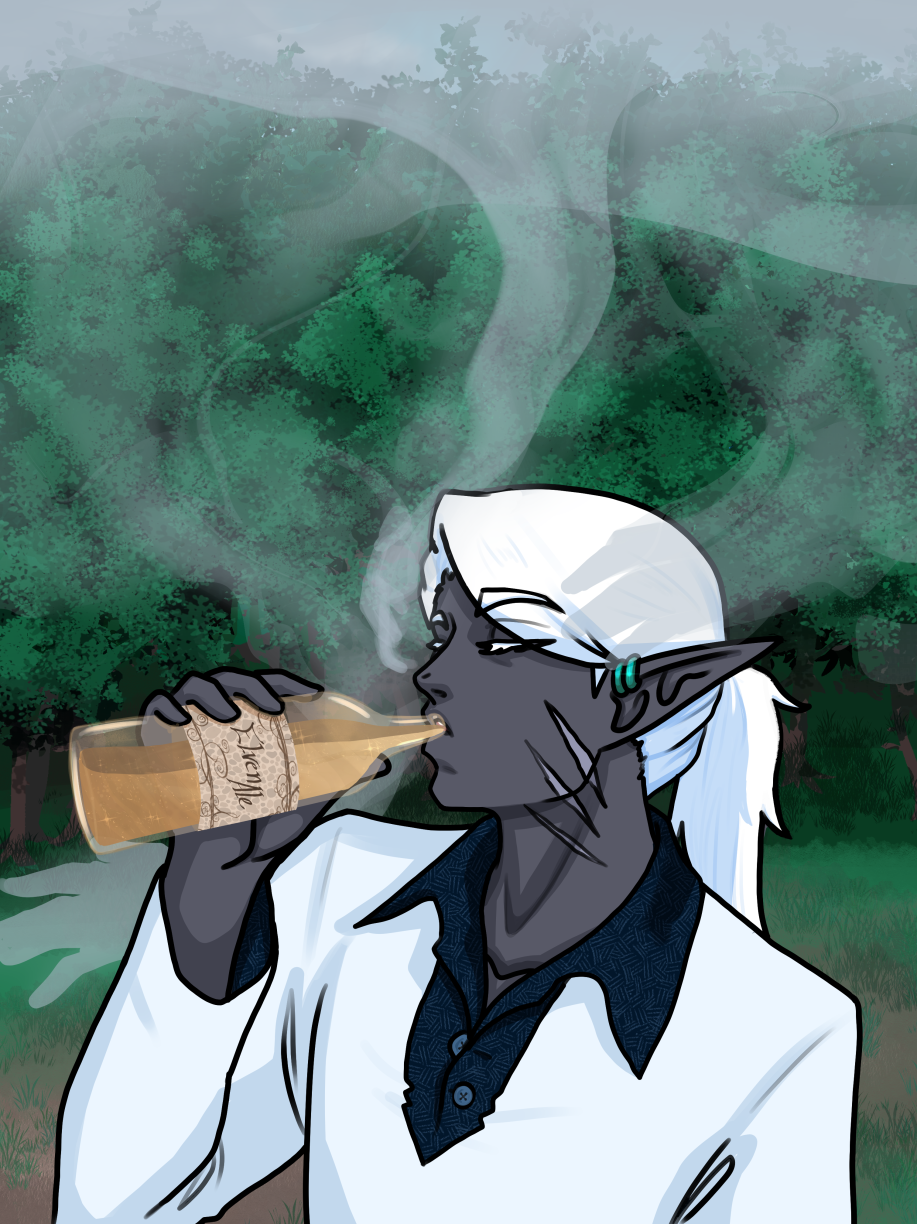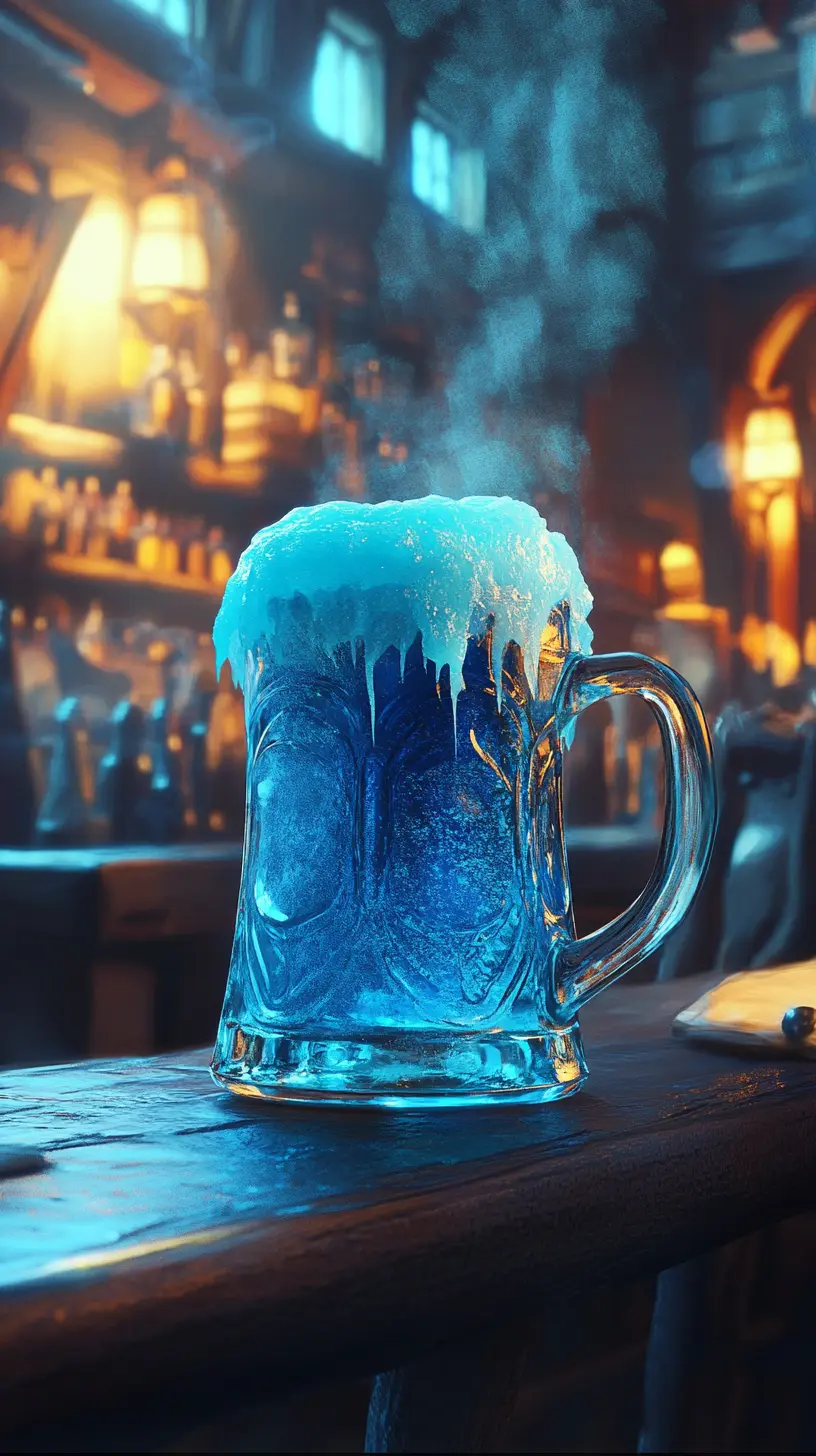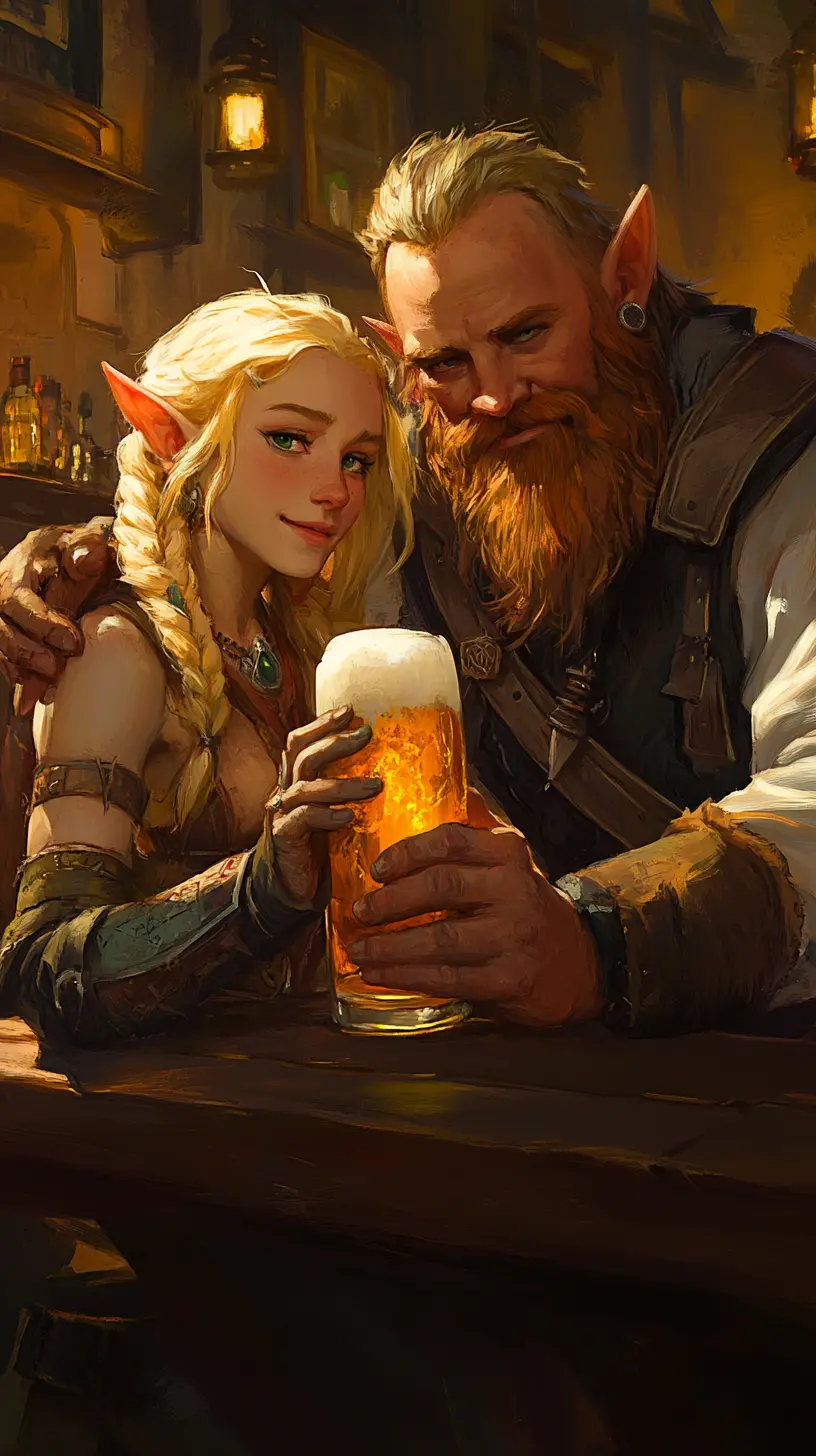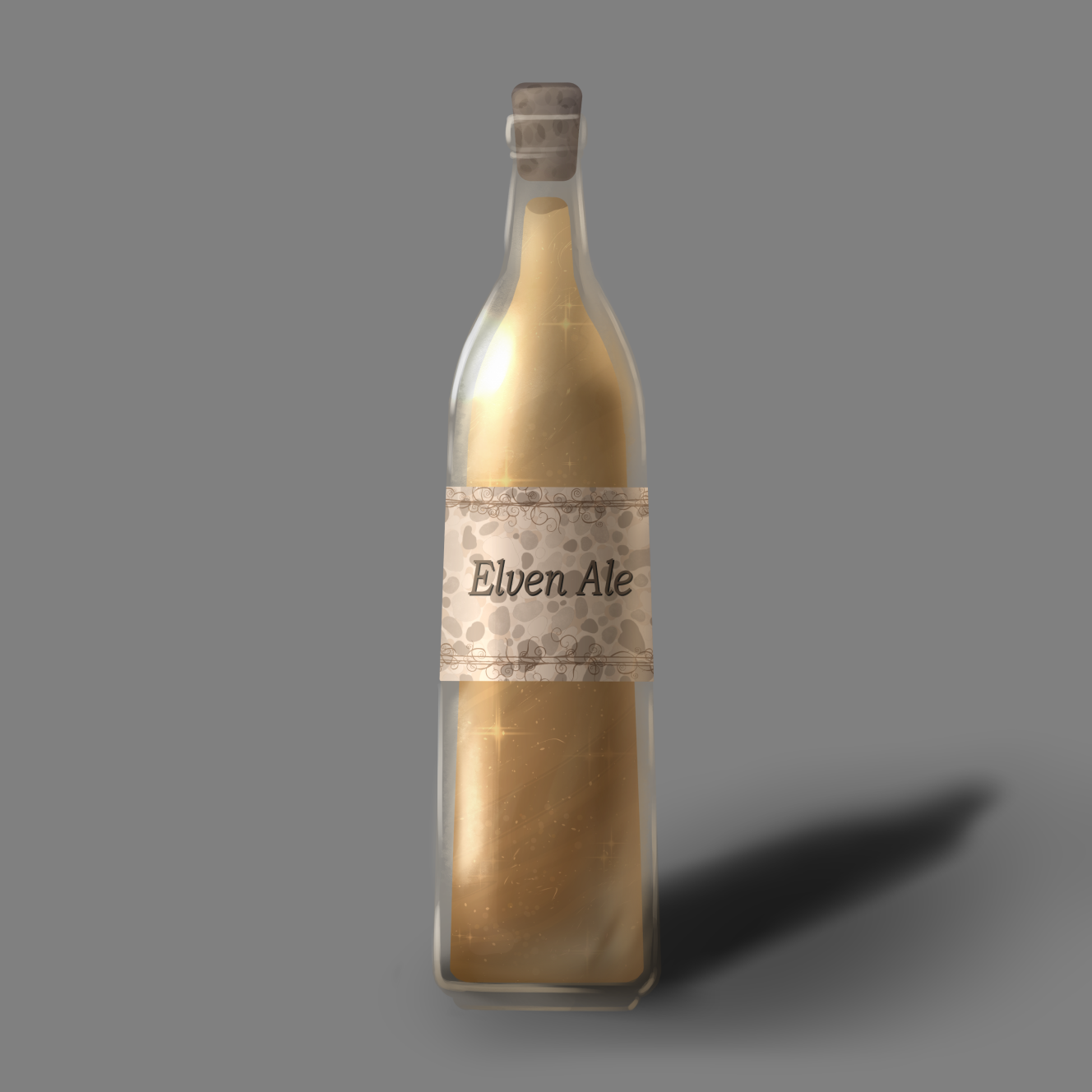This is not a tale of names or mortals. This is a myth of epic proportion, as befits a creation as fine as this.
Long ago, beyond the gates of truth and time, the gods crafted mortals aplenty. Of these early sparks of life were the dwarves, crafted by their Father from brilliant gem in the
heart of their lands, and the elves, birthed by their Mother from light and plant.
Dwelling on different worlds, the two sparks held their own brilliance. The elves, tall with eyes like the sky and a knack for the world, swiftly mastered intricate portals and wove fine, delicate crafts into being. The dwarves, broad like the earth with forgefire at their hearts, honed their magics into healing and hammered strength into their sturdy crafts.
In time, the elves travelled through the immaterial and landed upon
Istralar. For the first time, the two species of beloved crafter were
Above, their parents watched. Above, their parents locked eyes.
A bet, the Father proposed. A challenge between their children, unbeknownst to them. They'd encourage both to solve the same problem, to see which solution they would prefer. They could cast down a challenge through their oracles, and have their friends, companions in the realms beyond, judge what was created. Curious, the Mother agreed, knowing that they would both be proud regardless.
Alas, as is so often the case, others eavesdropped on their talk. It was a rarity for the duo to speak, opposed as they were, with the rivalry they had ever held in the realm of the gods that had passed itself onto their progeny. One such eavesdropper decided that this was the perfect time to interfere with the challenge.
To the dwarves, he appeared as a curious elf. To the elves, he appeared as an intrigued dwarf. To both, he was a curiosity and - though they did not realise it yet - a thorn in their sides. His true nature well-hidden even from his deific kin, the trickster interfered with every craft both communities made. Worse, too, was the subtle antagonism he offered both sides. With each act, he implied more of each side's failings. With each deep conversation, with every hope of teaching him, he embedded further thorns.
Above, the parents were horrified as their light challenge, disguised as simple requests from the gods, became mired in a darkness neither of them expected. Through their mouthpieces upon the mortal realm, they hastily suggested that they were happy with what they'd seen. The contest was done, unfulfilled and ruined - but the trickster's work was not yet done. He sent his own missives draped in pretense, and sought to bring representatives of each group together for a meeting.
War painted the continents already. With the empire that would one day remain only as the nation of
Galasthin seeking power across the globe and the strict vehemence of the sole dwarven nation of
Gildómar, any meeting was destined to go poorly from the start. Still, the gods had seemingly requested the meeting, so the gods would get such a thing.
The trickster took the opportunity to manifest as a glowing herald, claiming to be an
angel speaking on behalf of their beloved gods. He bid them to please him with the crafts they had worked so hard on, fully aware of the flaws his own hubris had encouraged, and promised a boon if they were good. If both fell short of his appraisal, however, then the trickster promised a punishment that would echo throughout the ages.
Naturally, he claimed one of the two sides had failed.
Naturally, he would not say which. For his punishment - the only 'boon' he would ever have offered them - the trickster placed a curse on both species. If they were to work together, then their creations would lead only to ruin.
While his curse could not be undone, as in so many a tale, it could subsequently be lessened. While the parents could not directly intervene now, not without risk of damaging their relationships with their respective children, they were not the only ones watching this godly game play out. A god of chaos watched, too, from across their flagon of ale.
"No," he decided, picking up the threads of fate. "That's too much of a curse for mortals to bear. We don't toy with them like
that. Your curse will be bound to the drinks they craft together, should they ferment them into something new, so that it is their
choice to experience it. And ruin? Ruin's so old. They deal ruin to themselves already. Instead: let us witness a piece of entropy in action. None can decide the answer to what they make, not even us!"
And forever more, so it was. No matter their origin, elves and dwarves would ever brew madness if they worked together.
Thanks, gods. You've cursed the planet to forever deal with bizarre drugged alcohol. This is why you arseholes got banned from interacting with mortals during the
First Divine War. You'd think they'd undo pre-existing damage, but
noooo.













I ***ing LOVE that origin story and the god with the ale is my spirit diety!!!! They were the only one thinking straight. Fuck it a little madness makes the world spin round, why not and Ruin is truly so overdone. I mean at this point I might as well add Istralar entirely to my collection (or maybe I already have) but most definitely this is joining the others, I adore this, such a fun story, such an amazing beverage, and an intriguing curse and condition for how the beverage can come to be. And for the posterity. The rolls. Grog was 450 even. Wild magick 1-3 were in order; 1602, 217, 8602. I look forward to learning my fate :P
The tables are linked in the same section: Your dreams are replaced with visions of being a beautiful mermaid viciously devouring the bodies of sailors. You had best avoid hallowed ground, as you will suffer intense pain whenever entering a church or temple (yikes). Any fires you extinguish will reignite in 6-24 seconds. And everyone within 50 yards is blinded if they're at full hit points. Now let's see if I can find that comment button...ah there it is!
"Sleeping Beauty" but make it gods and their strange bets x) I'm glad you had fun! I see Rashkavar already got you your results ;) Enjoy your strange dreams and I hope you can avoid some churches!
welcome to my signature! check out istralar!